Matt. 24:40-41; Luke 17:34-35
Below you'll see everything we could locate for your search of “Matt 7 NOT Matt 7:12”
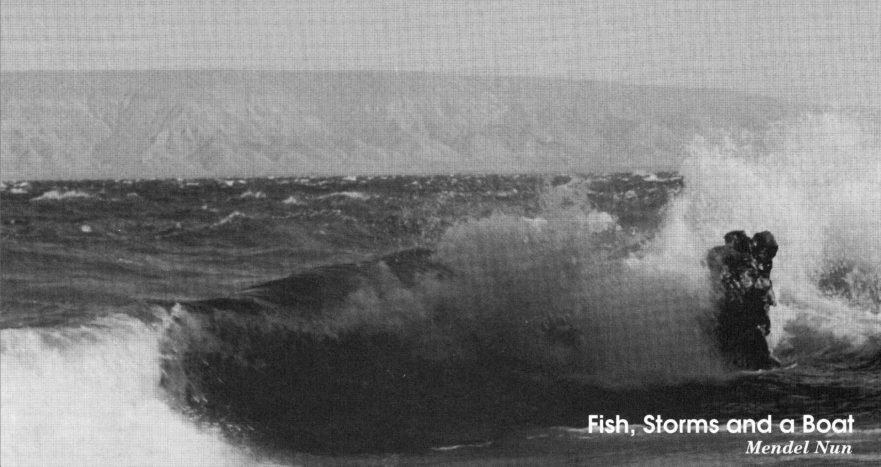
— wp:paragraph –>
Jesus, however, had a personal acquaintance with the life of Galilean fishermen, as can be seen from Matthew 7:9-10: “Which of you, if his son asks for bread, will give him a stone?

מְתֻרְגְּמָן (me⋅tur⋅ge⋅MĀN) is Hebrew for “translator.” The articles in this series illustrate how a knowledge of the Gospels’ Semitic background can provide a deeper understanding of Jesus’ words and influence the translation process.
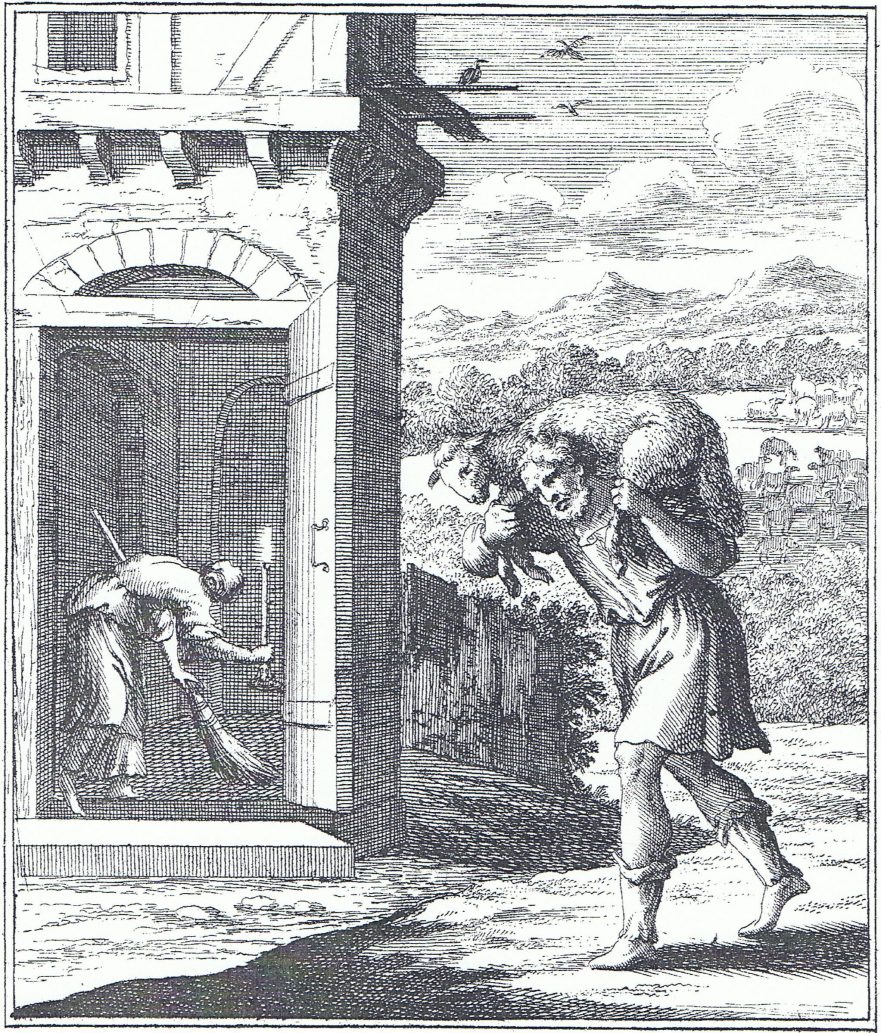
Next, we could add to this story the teaching discourse found in Matthew 7:7-11:
Ask, and it will be given you.

This variation occurs twice in Mark (Mark 1:9; 4:4); 5 times in Matthew (Matt. 7:28; 11:1; 13:53; 19:1; 26:1); 22 times in Luke (Luke 1:8, 23, 41, 59; 2:1, 6, 15, 46; 7:11; 9:18, 28, 33, 37; 11:1, 14, 27; 17:14; 19:29; 20:1; 24:30; 24:51). 2) subjectless ἐγένετο + time phrase (as here, in Luke 9:51: “when the days were fulfilled”) + kai (and) + finite verb (as here, in Luke 9:51: “he set”).

(Matt. 7:9-10; NIV)
bread | stone
fish | snake
Nation will rise against nation,
and kingdom against kingdom. … (Matt. 7:2; my trans.)

But Matthew’s version has the Jewish idiom that probably is the one Jesus used: “…your father who is in heaven…” (Matt. 7:11).

This rabbinic saying has a familiar ring to readers of the New Testament because Jesus uttered a similar saying: “With the measure you measure, it will be measured to you” (Matt. 7:2; cf. … (Matt. 7:16; my trans.); Nor do

., “Do not give the holy to the dogs, and do not throw your pearls before the pigs, lest they trample them with their feet, and turning, rend you” (Matt. 7:6).

How to cite this article: Guido Baltes, “(Why) Did Jews Hate Tax Collectors-Or Did They? The Evolution of a Modern Stereotype in Biblical Studies,” Jerusalem Perspective (2024) .
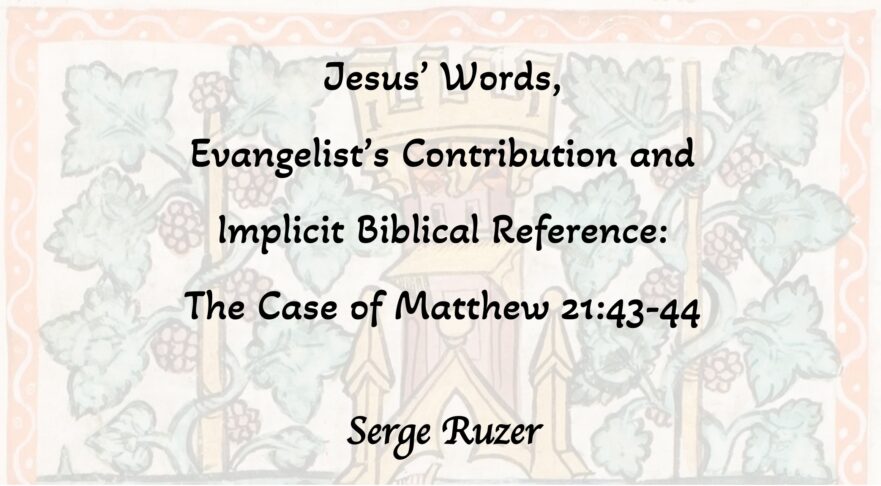
How to cite this article: Serge Ruzer, “Jesus’ Words, Evangelist’s Contribution and Implicit Biblical Reference: The Case of Matthew 21:43-44,” Jerusalem Perspective (2024) .
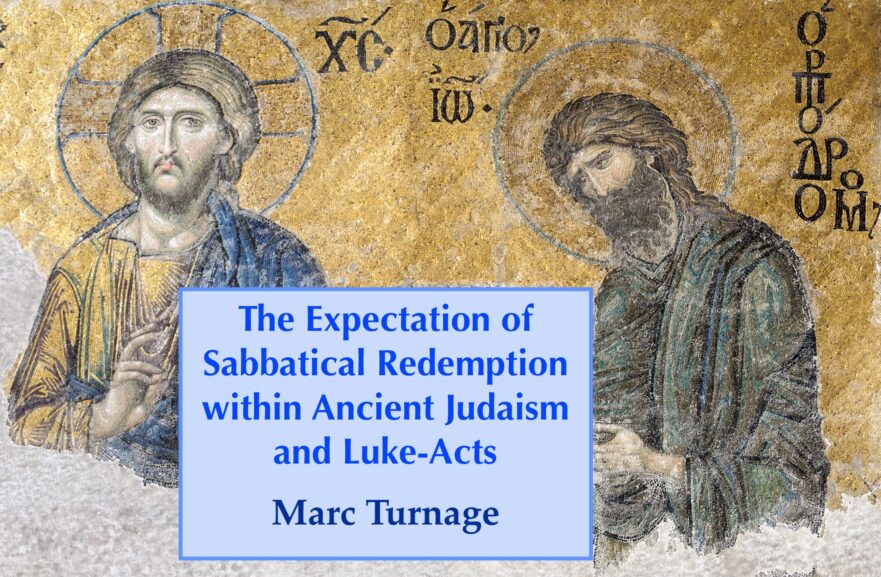
How to cite this article: Marc Turnage, “The Expectation of Sabbatical Redemption within Ancient Judaism and Luke-Acts,” Jerusalem Perspective (2024) .

He did the same with teaching sections, placing each teaching section next to other such sections (resulting in such complexes as the Sermon on the Mount, 0100400007000
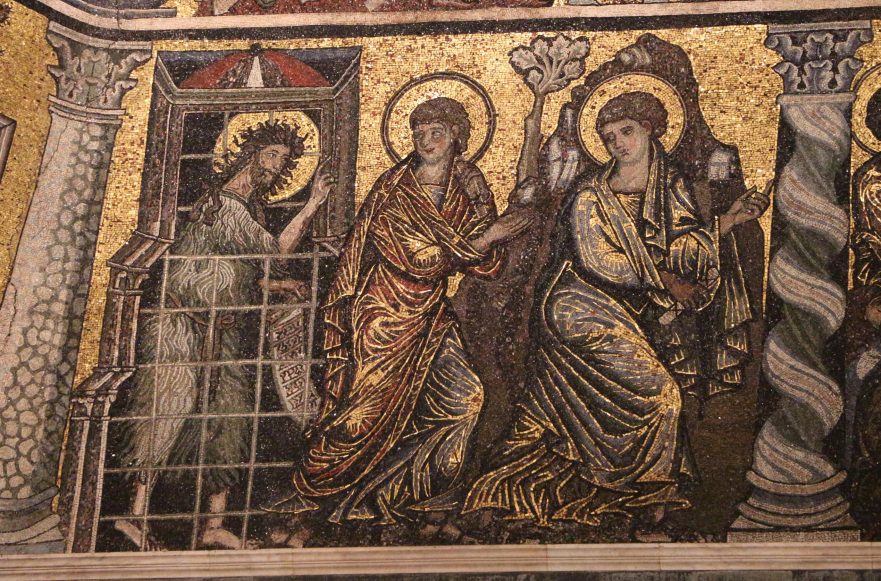
Matt. 11:2-6; Luke 7:18-23
(Huck 64, 81; Aland 106; Crook 122)For abbreviations and bibliographical references, see “Introduction to ‘The Life of Yeshua: A Suggested Reconstruction.'” Updated: 1 November 2023
וַיַּגִּידוּ לְיוֹחָנָן תַּלְמִידָיו עַל כָּל הַדְּבָרִים הָאֵלֶּה וַיִּקְרָא לִשְׁנֵי תַּלְמִידִים מִתַּלְמִידָיו וַיִּשְׁלַח אֶל הָאָדוֹן לֵאמֹר הַאַתָּה הוּא הַבָּא אוֹ לְאַחֵר נְיַחֵל וַיָּבֹאוּ אֵלָיו וַיֹּאמְרוּ יוֹחָנָן הַמַּטְבִּיל שָׁלַח אוֹתָנוּ אֵלֶיךָ לוֹמַר הַאַתָּה הוּא הַבָּא אוֹ לְאַחֵר נְיַחֵל בְּאוֹתָהּ הַשָּׁעָה רִפֵּא רַבִּים מֵחֳלָאִים וּמִמַּכּוֹת וּמֵרוּחוֹת רָעוֹת וּלְעִוְרִים רַבִּים נָתַן לִרְאוֹת וַיַּעַן יֵשׁוּעַ וַיֹּאמֶר לָהֶם לְכוּ הַגִּידוּ לְיוֹחָנָן מַה שֶּׁאַתֶּם רוֹאִים וְשׁוֹמְעִים עִוְרִים נִפְקָחִים וּפִסְחִים מִתְהַלְּכִים מְצֹרָעִים מְטוֹהָרִים וְחֵרְשִׁים שׁוֹמְעִים וּמֵתִים קָמִים וַעֲנִיִּים מִתְבַּשְּׂרִים וְאַשְׁרֵי מִי שֶׁלֹּא יִכָּשֵׁל בִּי
Now, Yohanan’s disciples told him all about these things, so he picked two of his disciples and sent them to the Lord, saying, “Are you he who is coming, or must we continue waiting for someone else?”
So they came to Yeshua and said, “Yohanan the Immerser sent us to ask you, ‘Are you he who is coming, or must we continue waiting for someone else?'”
(Now at that time Yeshua healed many from sickness and injury and demonic oppression, and he gave many blind people the ability to see.)
So Yeshua replied, “Go tell Yohanan about what you yourselves can see and hear: people who were blind are now seeing and people who were lame are now walking around.

Through the window of a single New Testament episode we can gain insight into how Jesus and his Jewish contemporaries employed sacred texts with creative ingenuity to grapple with the complex issues of their day.

— wp:paragraph –>
In the same vein on another occasion Jesus cautioned his followers, “The measure you give will be the measure you get” (Matt. 7:2). … His statement, instead, is a clear and unmistakable crystallization of the popular Jewish notion that we have already mentioned, “Be merciful as your father in heaven is merciful” (Luke 6:36), or “With the judgment you pronounce you will be judged” (Matt. 7:2).

How to cite this article:
David N. Bivin and Joshua N. Tilton, “LOY Excursus: The Kingdom of Heaven in the Life of Yeshua,” The Life of Yeshua: A Suggested Reconstruction (Jerusalem Perspective, 2014) .

How to cite this article:
David N. Bivin, “LOY Excursus: Mark’s Editorial Style,” The Life of Yeshua: A Suggested Reconstruction (Jerusalem Perspective, 2014) .